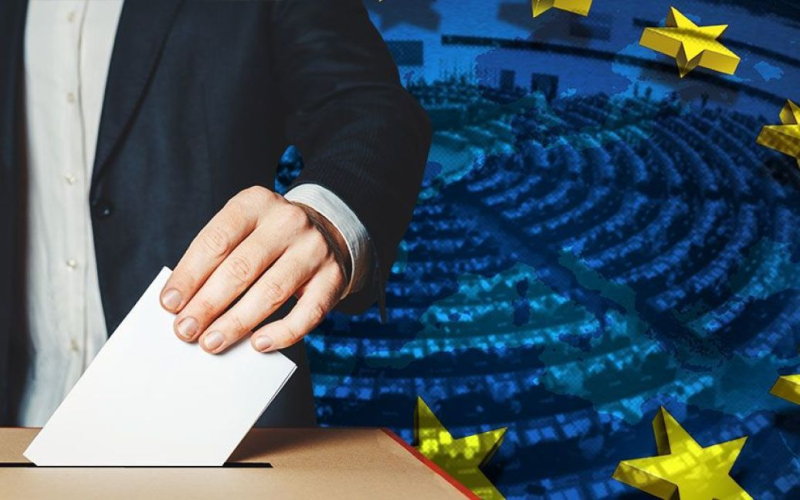
Ukraine, as a candidate state for accession to the EU, should pay special attention to the elections to the European Parliament – one of the most pro-Ukrainian institutions in the world.
Support for far-right parties appears to have stagnated ahead of European elections in June, suggesting that the German spy scandal could damage their reputation.
Bloomberg writes about this.
“Identity and Democracy”
The Identity and Democracy Alliance, which includes France's Marine Le Pen and the Netherlands' Geert Wilders, has stalled, according to polling averages compiled by Europe Elects and published by Euractiv. It is currently the sixth largest political group in the European Parliament.
Identity and Democracy (ID) is projected to receive 11.2% of the vote, the same as last month's poll. That would give it 84 Assembly seats, down from 93 in December, data showed.
“Alternatives for Germany”
Support for one of the ID's largest member parties, the Alternative for Germany (AfD), has declined following allegations of links to Chinese intelligence and a pro-Russian media organization.
Anti-immigrant party
The anti-immigrant party behind a German version of Brexit and opposed to the European Central Bank's policies is battling Chancellor Olaf Scholz's Social Democrats for second place in Germany, a poll shows.
AdN also fell behind Scholz's party for the first time since last summer in the latest Forsa poll for RTL/ntv, published on Tuesday, April 30. This poll measured voter intentions regarding the German national elections due in the fall of 2025.
European political parties are stepping up their campaigns five weeks before the pan-European vote for the 720 seats in the European Parliament. The vote will also pave the way for the election of leaders of European institutions, including the bloc's executive branch, currently headed by Ursula von der Leyen.
Risks for Ukraine
The stakes are high for the 27-member alliance, whose winners will set the agenda for the next five years to transition to clean technologies and strengthen defense capabilities due to Russia's war against Ukraine, Bloomberg writes. Previous victories for far-right leaders, including Wilders, have prompted warnings of potential paralysis of the EU agenda and risks to the bloc's support for Ukraine if populists win more seats in June.
Absolute majority in parliament
The largest political group, the center-right European People's Party, maintained its share of 23% in the polls, giving it 183 seats. The center-left S&D party is projected to win 140 seats, while the center-liberal group Revival is projected to win 86 seats. This will give the three parties an absolute majority in parliament.
Support for Italian Prime Minister Giorgio Maloni's European Conservatives and Reformists party increased slightly to 11.8% of the vote from 11.2% a month earlier.
The Green-Left alliance has reduced the projected number of seats in parliament.
For each constituency, Europe Elects takes into account polls published in the previous 90 days, using only the most recent poll published by each company.
Attempts to blow up the elections
The election also comes amid growing attempts to undermine the process through fraud and disinformation, officials warn. False instructions on how to vote, pens with disappearing ink and claims of physical threats to polling stations, including fake bomb reports, are some of the tactics used in the bloc's member countries, Delfina Kolar, a spokeswoman, said Monday. Parliament .
Parliament, together with other European institutions, is working to strengthen monitoring of disinformation efforts, including “deep fakes.” “We know that there is a huge pro-Kremlin campaign aimed at alienating citizens from parliamentary democracy,” Kolar said.
Recall, in the German state of Mecklenburg-Vorpommern, the police took a 16-year-old schoolgirl from class because of a video published on a social network with fairy-tale characters the Smurfs in support of the far-right party Alternative for Germany (AfD).
Related topics:
More news

